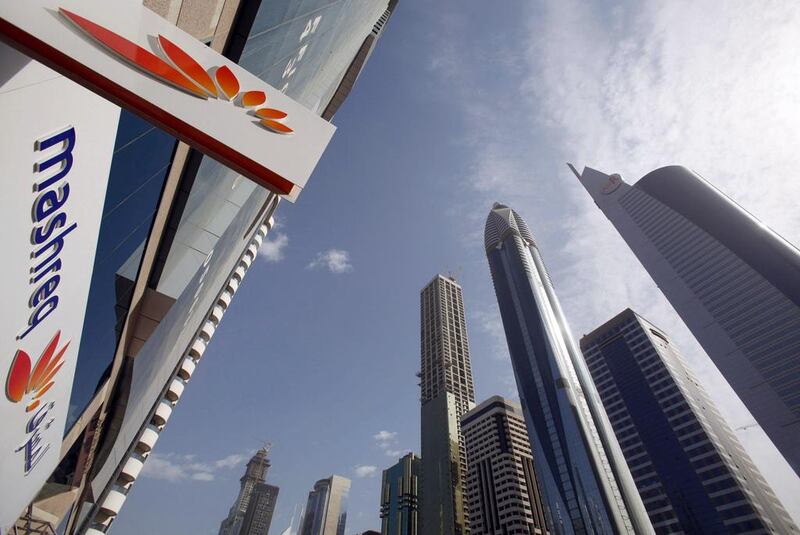Mashreq, the Dubai lender, said third-quarter profit rose 35 per cent, boosted by gains in net interest income, fees and commissions and a drop in money set aside to cover bad debt.
The bank’s profit for the three months to the end of September increased to Dh561 million from Dh415m in the corresponding period last year, the bank said yesterday, as impairment allowances decreased 44 per cent to Dh265m.
Net interest income and income from Islamic financing advanced 3.9 per cent to Dh910m compared with Dh876m in the same quarter last year, while fees and commissions grew 3.8 per cent to Dh414m compared with Dh399m over the same period.
_________________
Read more:
[ Mashreq bank representative jailed for stealing more than Dh600,000 from bank ]
[ Abdul Aziz Al Ghurair: Digital banking gaining speed in the UAE ]
_________________
“It has been a period of muted growth for the UAE banking sector gross credit growing by only 0.3 per cent as of August 2017,” said AbdulAziz Al Ghurair, Mashreq’s chief executive.
“However at Mashreq we have been successful in increasing our loan book by 6 per cent year to date. With a focus on cost management that has seen us reduce operating expenses by 1.7 per cent year-on-year and a strong 30 per cent decline in credit costs, I am delighted to report a 12 per cent year-on-year increase in net profits for the first nine months of the year.
“Our strong liquidity and capital position has us well placed to capitalise on future growth opportunities.”
Slow lending has crimped the profitably of some banks in the UAE over the past year amid sluggish economic growth and subdued consumer confidence in the wake of a three-year oil slump in which crude prices have fallen by more than half of their 2014 highs.
Mr Al Ghurair said last month that credit growth in the UAE is likely to remain flat this year as banks remain cautious about lending, following a surge in non-performing loans that came about as oil prices fell.
Small and medium-size businesses (SMEs) were particularly affected by the slump, leaving a pile of accumulated bad debt and prompting a number of business owners to skip town.





